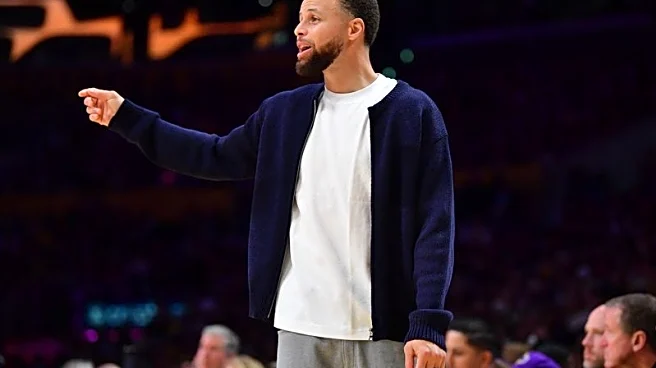
Manchester United may have lost some of their prestige when Sir Alex Ferguson retired, but perhaps surprisingl,y they didn’t lose their ability to attract some of the biggest names in the sport to come
play for them.
It began with Louis van Gaal’s Galacticos luring names like Radamel Falcao and Angel Di Maria to Old Trafford, along with spending a record £30 million for the best teenage fullback prospect in the country, Luke Shaw. Under Jose Mourinho, Paul Pogba arrived along with Zlatan Ibrahimovic, who referred to himself as “the god of Manchester.”
Ole Gunnar Solskjaer got in on the act too. In his third season in charge, Raphael Varane joined United from Real Madrid. A few weeks later, he was joined by his former teammate Cristiano Ronaldo. The following year, Erik Ten Hag looked to the same club to make a big signing, bringing in five-time Champions League winner Casemiro.
One of the things players claim to prize is the ability to play in the Champions League. Yet the lack of Champions League football has not stopped United from luring these big names to Old Trafford. Zlatan, Pogba, and Casemiro all joined in seasons where United were relegated to competing in the Europa League. United didn’t have any European football to offer when they signed Di Maria from the Bernabeu and Falcao on loan.
Despite terrible results on the field, United continues to land in-demand players. How are they doing this?
It’s a question that The Athletic’s Andy Mitten attempted to answer back in June. Mitten’s article focused on the appeal to a player's ego. There’s the aura of playing at Old Trafford and adding your name to go alongside the list of great players who have pulled on the famous red shirt. These days, there’s the appeal of being the guy to lead United back to the glory days.
On some level, players care about that, though they also claim to play in the Champions League. United keep landing these players for one reason: money.
United simply pays more of it than anyone else.
This summer, United moved swiftly to sign Mathues Cunha from Wolves. Cunha had a £62.5 million release clause in his contract, which he only signed back in February despite interest from Arsenal and Nottingham Forest.
Arsenal and Forest’s interest in Cunha came during the January market. It’s unclear whether either would have been interested in paying the release clause, which was considered high for a 26-year-old player coming off a career year.
United’s attention has now shifted to Brentford’s Bryan Mbeumo, who has reportedly turned down interest from Newcastle, Aston Villa, and Tottenham Hotspur in favor of joining United.
I’m not sure there was ever much interest from Tottenham. That seemed to be nothing more than a new manager is interested in his former player low-hanging fruit rumor that is so easy for the media to drive up. However, whether we include Spurs or throw them out, the reality is all five of the clubs mentioned will play European football next year, while United will not. Yet both players have (reportedly) chosen United.
Both players are in the prime of their careers, while United is more than a year away from being a legitimate contender to qualify for the Champions League. Choosing United makes it pretty unlikely that they’ll be playing meaningful minutes in the Champions League during their primes.
So why are they choosing United? Take a look at the wages.
NOTE: It’s at this point that we should address the elephant in the room. Player wages are not publicly disclosed so no one actually knows what players are making (plus their contracts are filled with tons of bonuses, some legit and some ridiculous). The websites Sportrac and Capology have become a bit mainstream, but are far from exact.
None of the numbers from these sites should be taken as exact, but merely as ballpark estimates.
It was initially reported by The Times that Mbeumo was seeking wages of £250k a week in his new deal. This was initially reported by a Newcastle-based writer who you could imagine had a motive for saying such a thing when Mbeumo chose United over the Magpies.
Current reports state that United are offering Mbeumo wages of around £150k per week, which the report states is in the “same region as the wages Cunha will be on.” Capology and Sportrac both have Cunha set to earn £180k per week.
Let’s dive into that a bit more.
According to Capology, wages of £150k/wk would make Mbeumo Newcastle’s second highest paid player behind Bruno Guimaraes, and 25 percent more than star player Alexander Isak. At Aston Villa, he’d be the joint highest earner along with Emi Martinez, Youri Tielemans, and Boubacar Kamara. He would be on more money than Amadou Onana and Ollie Watkins. At Spurs, £150k/wk would make him the fourth highest earner in the squad.
It is highly unlikely that any of these clubs would be offering Mbeumo that kind of money. It simply doesn’t fit their wage structure.
Newcastle have made a very sudden rise in the Premier League by being very well run and smart with their spending. They’re not the type of team that’s going to triple a players wages based on one season where Mbeumo scored more than twice as many goals as his previous best. Aston Villa have run into financial issues and need to shed some costs. It doesn’t seem likely they’d be offering £150/wk.
A move to Spurs might only make Mbeumo their fourth highest earner, but we already have a benchmark to go off to say that Spurs would not be offering him that salary. Two seasons ago, as a 25-year-old, Dominic Solanke scored 19 goals for Bournemouth. He moved to Spurs last season and is reportedly earning around £90k/wk.
Surely Spurs would argue that nearly doubling Mbeumo’s wages and offering a chance to play in the Champions League is a hell of a raise from what he’s currently on. In fact all three teams would likely make that case.
Mbeumo is currently on a reported 50k/wk wages at Brentford. He can be offered a substantial raise without tripling his wages. And yet that’s what United are reportedly offering.
While the transfer fee Brentford are holding out for may be the market rate, thanks to the fees paid for Cunha, Joao Pedro, or Anthony Elanga, the wages United are offering seem to be well over the market rate for the player.
There’s another thing we have to remember. Manchester United’s contracts are structured in a way that there’s a 25 percent reduction in salary if the club is not participating in the Champions League. This is a good tactic when you’re negotiating from inside the Champions League but it becomes tricky when the team is already on the outside.
When agents are negotiating deals, they tend to negotiate the salary their client will receive immediately. What will my client make this season? That becomes the base salary, which is then subjected to the same 33 percent increase the rest of the squad gets should they qualify for the Champions League. Casemiro’s wages “increased significantly” when United qualified for the Champions League in 2023-24.
Now factor in this. According to The Athletic, Cunha’s wages are actually £200k/wk, which is not “the same region” of Mbeumo’s offered wages. People like to report different things, and agents especially like to report the highest value of a contract for their client. If we do the quick maths, £150k/wk is a 25 percent reduction from £200k/wk, which means both reports can be true, andthe likely case is Cunha will be making closer to £150k/wk this season.
That is still a substantial raise for Cunha. Cunha entered last season on £90k/wk, the same as Wolves' three other highest earners. At the end of the January transfer window, he signed a new deal worth a reported £120k/wk, a third more than the next guy. That deal included the £62.5 million release clause, and Cunha left six months later.
What seems to have happened was Wolves offered Cunha more money for a few months in exchange for not leaving for a very reduced fee back in January. That they sold him so quickly after giving him a new multi-year contract suggests that they never had any intention of keeping such a high earner in their squad for a few years.
This should have given United leverage in negotiating a fee. Wolves' wage structure likely can’t afford the £120k/wk Cunha was set to earn. It would have meant long negotiations, which United wanted to avoid.
One of the appeals United makes to prospective players is that of building their personal brand. United boasts of their millions of followers across various social media platforms and how that reach will lead to an increase in followers for the player and an increase in sponsorship opportunities.
They’re arguing that a United player will have higher earning power than a player on the same wages for another club. If that’s the case, then why does United need to blow them out of the water with the offered wages? Furthermore, why offer Cunha - and certainly Mbeumo - such large raises?
If United want to sell the idea that there is an aura around playing at Old Trafford - that there is a bigger status to playing for Manchester United than for Wolves or Brentford - then wouldn’t the players be willing to move for similar wages? Isn’t the desire to be the one to lead United back to glory worth something, as the media try to tell us it is?
That’s clearly not the case, and United are in a position where they clearly need to outbid their rivals if they want to land these players. This represents another example of the club not having learned from its past mistakes.
Manchester United have currently exiled Marcus Rashford, Jadon Sancho, Antony, Alejandro Garnacho, and Tyrell Malacia from the first team. The group is required to show up to training at Carrington, but not until after 5 pm when the first team has left, as United look to offload the players.
Garnacho is a bit of a different story, but the other four players are unsellable. United quietly tried to sell Rashford last summer before loudly trying in January. They tried to sell Sancho in January 2024 as well as last summer, and tried to move Antony on in January. None of them got so much as a single offer, and United were forced to accept heavily subsidized loans for each of them.
The reason none of them can be moved is that they’re on astronomical wages. Sancho’s wages jumped nearly 5x when he joined United. When he went back to BVB on loan, he was the eighth highest paid player in the Bundesliga! Antony, with little transfer competition, still got a quadruple raise. Tyrell Malacia went from £6.5k/wk to £75k/wk! Why?!? Why was such a big raise necessary? Would he not have made the move for £50-£55k/wk, which would have been double his salary?
United have a history of offering higher wages to players than their market value and an equally long history of struggling to move those players on.
For a club that prides itself on legacy, United still relies heavily on its wallet. Once again, United look set to pay above market value for transfer targets, putting them at risk of repeating the same cycle: bloated wages, unsellable players, and an ever-dwindling return on investment.
More from thebusbybabe.sbnation.com:
- Manchester United linked with move for Samir Nasri
- Remembering Munich, 60 years on
- United could swoop for Real Madrid midfielder
- Alexis Sánchez is world class, but what United really needed in January was a midfielder
- Patrice Evra returns to the Premier League!
- José's Juniors: U-18s win a nine-goal thriller
- Manchester United target Antoine Griezmann returns to France after being booed by Atletico fans











